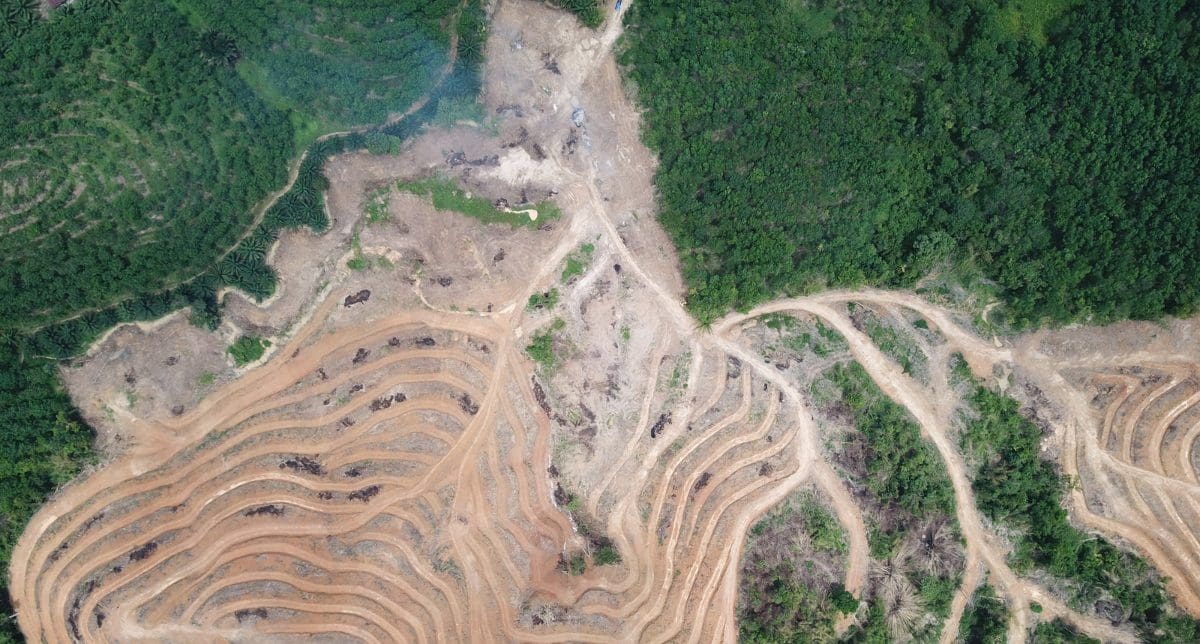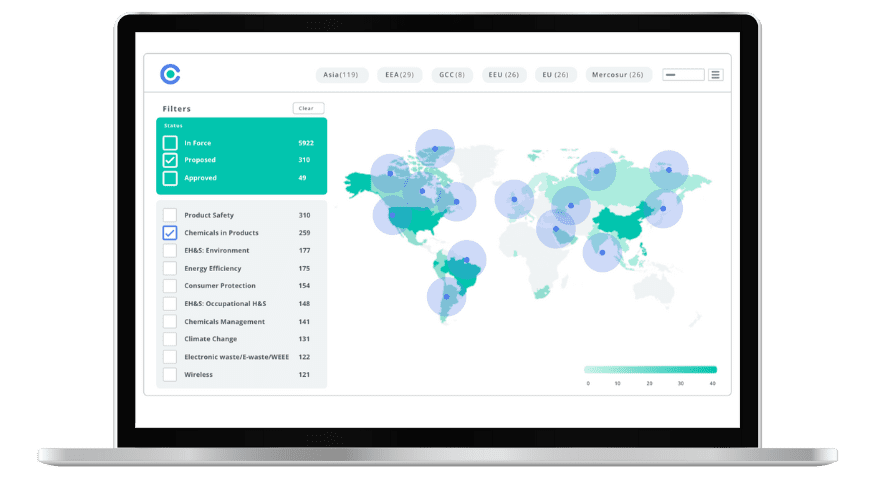
Beyond the Delay: What the EUDR Amendments Mean for Your Forest Product Supply Chain

This blog was originally posted on 3rd November 2025, and was updated on 19th January 2026. Further regulatory developments may have occurred after publication. To keep up-to-date with the latest compliance news, sign up to our newsletter.
AUTHORED BY HANNAH JANKNECHT, REGULATORY COMPLIANCE SPECIALIST, COMPLIANCE & RISKS
Although the EU Commission initially proposed more limited and targeted adjustments to the EU Deforestation Regulation, the European Parliament and the Council ultimately agreed to postpone the regulation’s application date by one year for all companies within scope. In addition to the delay, the co-legislators introduced several simplifications for downstream operators, traders, and micro and small primary operators.
This blog explores the amendments introduced by Regulation (EU) 2025/2650, their implications for businesses involved in the production and trade of forest products, and it considers potential upcoming developments expected in 2026.
Want to take a deep dive into Deforestation and Illegal Logging in Global Supply Chains? Check out our whitepaper!
What Are the Changes to the EUDR Timeline?
One of the central elements of the EUDR amendment is the revised implementation timeline. After previously postponing the regulation’s application from 2024 to 2025, the Council and Parliament have now agreed to defer it once more. The updated schedule is as follows:
- 30 December 2026: Application of the EUDR for large and medium-sized companies
- 30 June 2027: Application of the EUDR for small and micro enterprises
The classification of medium, small, and micro enterprises follows the definitions provided in the Accounting Directive 2013/34/EU.
Are There Any Changes to the Product Scope?
Yes. Beyond adjusting the application dates, the European Parliament also negotiated to remove CN Chapter 49 on printed products from the scope of the regulation. As a result, companies placing items such as books, newspapers, and other printed materials on the EU market are no longer subject to the requirements of the EUDR. A detailed list of the products previously covered under Chapter 49 can be found in the latest version of the Combined Nomenclature. It should be noted, however, that this amendment does not extend to paper products more broadly, since items such as cartons, boxes, and bags classified under Chapter 48 remain within the scope of the regulation.
Who is Responsible for Submitting a Due Diligence Statement?
Obligations for Operators
Under the amended EUDR, the responsibility for conducting due diligence and submitting a due diligence statement now rests solely with the operator. An operator is defined as the natural or legal person who, in the course of a commercial activity, places relevant products on the market or exports them, excluding downstream operators.
Obligations for Operators and Traders Further Down in the Supply Chain
Before the December 2025 amendment, both operators and traders further down the supply chain were required to submit their own due diligence statements. Although these entities could reference an existing due diligence statement from the initial operator, they first had to ascertain that due diligence had been properly carried out.
The 2025 amendment significantly reduces the obligations for downstream operators and traders by removing the obligation to submit a due diligence statement. The regulation now defines downstream operators and traders as those who, in the course of a commercial activity, place on the market or export relevant products that are already covered by a due diligence statement or a simplified declaration. The new obligations are set out in Article 5 of the amended regulation.
The first downstream operator or trade (that is, the entity purchasing a product from the operator who initially placed it on the market) must:
- Retain the due diligence statement (DDS) reference number for a period of five years and provide it to competent authorities upon request, ensuring product traceability; and
- Collect and retain the following information on their suppliers and customers:
- Name, registered trade name or trademark, postal and email addresses, and, where available, a website address of the upstream operators, downstream operators, or traders who supplied them with the relevant products.
- The same contact details for the downstream operators or traders to whom they have supplied the relevant products.
Downstream operators and traders other than the first in the supply chain are not required to retain DDS reference numbers. They must however keep the records of their suppliers and customers listed above.
What is the New Subcategory of Micro and Small Primary Operators?
The EUDR amendment furthermore introduced the term ‘micro and small primary operators’ to describe companies that:
- Meet the size requirements for small or micro companies;
- Are established in a country that is classified as low risk in the EUDR benchmarking system; and
- Place on the market or export products which they themselves produce (meaning that they grow, harvest, obtain from or raise the relevant commodities in the relevant products themselves).
Micro and small primary operators are no longer required to submit a due diligence statement when placing their products on the market. Instead, they submit a one-time simplified declaration in the information system to obtain a declaration identifier, which is then passed on with all relevant products they place on the market or export to ensure traceability.
The information to be contained in this one-time simplified declaration is defined in a new Annex III, and it includes:
- Operator name and address;
- Harmonized System code and free-text description of the relevant products, including the trade name, and the annual quantity of relevant products intended to be placed on the market or exported;
- Country of production and the postal address or the geolocation of all plots of land on which the micro and small primary operator produces relevant commodities;
- Due diligence declaration covering all future products.
Looking Ahead into 2026 and Beyond
While the postponement of the EUDR provides companies with some additional time to prepare, those within scope are strongly encouraged to establish robust due diligence systems well in advance. To support operators and traders in becoming familiar with the EUDR Information System, the European Commission continues to host regular training sessions, with the 2026 dates to be announced shortly.
The EUDR FAQ and Guidance Document, last updated in April and August 2025 respectively, are now outdated, and the EU Commission is expected to update the documents in line with the latest EUDR amendment soon.
For those hoping that the 2025 amendment marks the end of the EUDR debate, more developments might already be underway. Beyond the comprehensive review now scheduled for 2030, the European Parliament negotiated to add an additional evaluation in 2026. By 30 April 2026, the Commission must now conduct a simplification review of the EUDR, submit a report to the Parliament and Council, and, if appropriate, propose further legislative adjustments.
For more information on Supply Chain Due Diligence in Europe and the key areas to watch out for in 2026, grab a copy of our whitepaper.
Experience the Future of ESG Compliance
The Compliance & Risks Sustainability Platform is available now with a 30-day free trial. Experience firsthand how AI-driven, human-verified intelligence transforms regulatory complexity into strategic clarity.
👉 Start your free trial today and see how your team can lead the future of ESG compliance.
The future of compliance is predictive, verifiable, and strategic. The only question is: Will you be leading it, or catching up to it?

Simplify Corporate Sustainability Compliance
Six months of research, done in 60 seconds. Cut through ESG chaos and act with clarity. Try C&R Sustainability Free.


